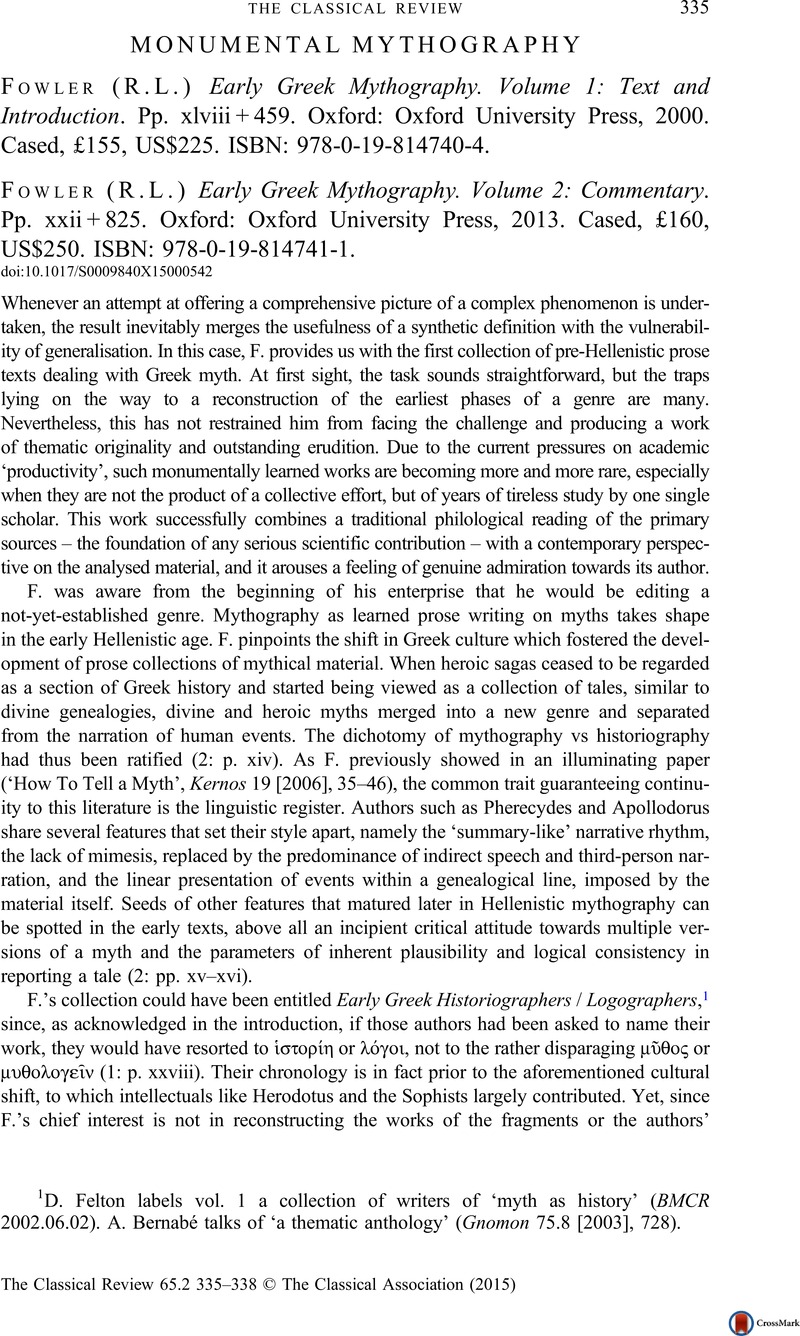Published online by Cambridge University Press: 05 August 2015

1 D. Felton labels vol. 1 a collection of writers of ‘myth as history’ (BMCR 2002.06.02). A. Bernabé talks of ‘a thematic anthology’ (Gnomon 75.8 [2003], 728).
2 M. Giangiulio, ‘Ippi di Regio, la Suda e l'erudizione pinacografica antica (FGrHist 554 T 1 = Suda, ι591 Adler)’, in S. Alessandri (ed.), Ἱστορίη: studi offerti dagli allievi a Giuseppe Nenci in occasione del suo settantesimo compleanno (1994), pp. 225–43.
3 There is no risk of the mythological commentary being criticised by any sensible reader, whereas there is a feeling of unease, which also emerges from the reviews to volume 1, regarding the alphabetical arrangement in the edition of the fragments. Would not a tentative chronological arrangement have better matched the asserted aim of showing the evolution of the genre, especially given F.'s criticism of Jacoby on this very issue (1: pp. xxix–xxx)?
4 The book is not geared for this task, not least because the fragments edited in volume 1 are a selection of those transmitted from the 29 authors, limited to the ones with a mythical subject. Thus, the portrayals of the mythographers cannot (and do not aim to) be complete.
5 The jarring data on these people induce F. to interpret them as the embodiment of the ancestral, pre-Greek people par excellence in the imagination of the Greeks and to reject the search for their localisation (2: pp. 84–96).
6 F. continues: ‘“Myths” were becoming “myth”, no longer organically linked with other things, but a kind of discourse in its own right’. Whatever F. intends by ‘other things’, myth still permeated many moments in the life of a fifth-century Greek citizen.
7 A. Bernabé, op. cit., 728–31; V. Liapis, CR 52.2 (2002), 236–8. Another minor objection by Bernabé concerns Chreophylus' fr. 3 (1: p. 66), which may be alternatively assigned to the homonymous epic poet from Samos. F. replies to this point and defends his attribution to the Ephesian prose writer (2: p. 232 n. 102).
8 These are taken into account within the mythological commentary which, as said, does not rely only on early mythographic sources.